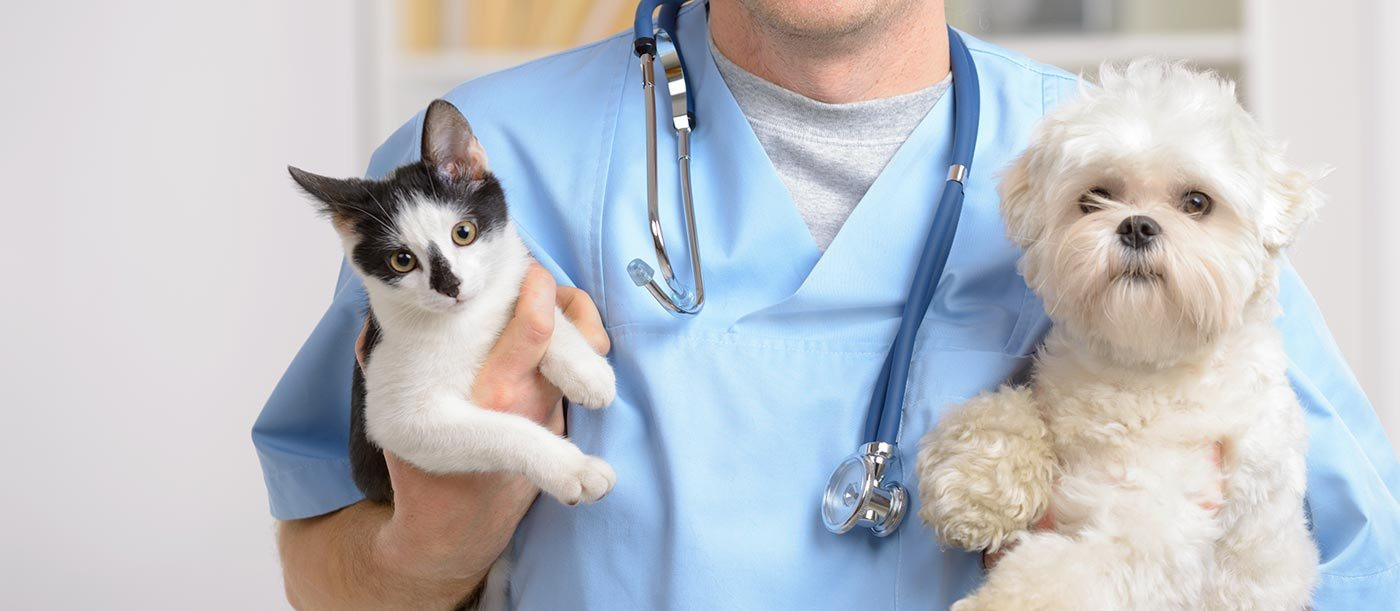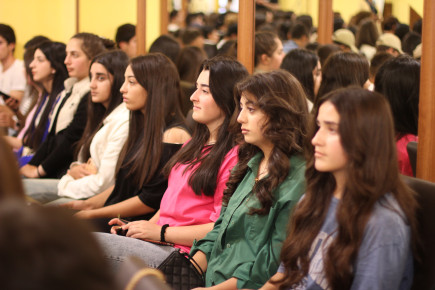Vocational Education as the shortest Path to Employment
Published: Nov 16, 2018 Reading time: 6 minutes Share: Share an article"It is never too late to study and vocational education can bring great prospects to young people. One just needs to take the first step. I guarantee you will get results that you couldn't even dream about," says Levan, a successful veterinarian who graduated from Didi Jikhaishi Vocational Education and Training (VET) college.

It is a fact that university graduates in Georgia have difficulties finding jobs. It is because our universities produce the most common professions such as lawyers, economists and historians. The over-supply of these professions exceeds market demand; while most in-demand technical trades, like baker, plumber, builder and technician have been quite neglected by our educational system for many years.
Until recently, vocational education in Georgia was considered a repository for less-capable students. But now we can see positive signals as the government has invested in numerous initiatives for supporting the development of a high-quality vocational education system. The officials at the Ministry of Education and Science of Georgia repeatedly underscore the fact that Vocational Education development stands high on the list of the ministry's priorities. Donors such as the European Union and NGOs are actively working in Georgia to supplement the government efforts.
As a result, today the reality is much better than just 5 years ago. According to official statistics, 70 percent of the 3,000 people who have graduated vocational education institutions in 2016-17 quickly found employment. Statistics are promising but the most important thing is that the trend in this type of education is positive. This trend gives us real optimism that in near future technical professions will prove themselves as important income-generating sources. Old stereotypes connected to vocational education will fade away.
In 2015, with funds from the European Union and the Czech Development Agency, People in Need (PIN) began a project focused on improving the quality of vocational education for the agribusiness sector through developing vocational institutions. As a result, four vocational education institutions in Imereti region were supported so that they could offer a higher quality education.
These PIN-supported vocational colleges are now better aligned to the demands of the local labor market because they have improved their vocational education curriculum. Teachers at the colleges have received the training necessary for providing high-quality VET Courses.
One of such institutions is Didi Jikhaishi VET College in Samtredia district. In the Soviet period, Didi Jikhaishi college was the largest in western Georgia. After the fall of the communist regime, the college gradually fell into disrepair until it closed in 2010. It reopened in 2015, partly on the initiative of motivated local staff and received support from PIN.
The improved curricula and qualified trainers soon have made Didi Jikhaishi College one of the most attractive institutions in the region. The new Veterinary programme accepts more than 45 students at a time and classes fill up quickly.
Since its reopening in 2015 Didi Jikhaishi VET College has paved the way to many young people. One of such is Levan Gvinjilia, who graduated from Tbilisi Medical University. After graduation, finding a job was a mission impossible for this motivated young man. In 2015, a friend who graduated from Didi Jikhaishi VET college's baker's course and who has a job as a baker in the local bakery, recommended Didi Jikhaishi VET College. Levan applied for the course that was closer to his original high educational interests and started studying veterinary medicine.
Together with 45 other young people, he was among the first to reap the benefits of a quality education supported by practical training in a well-equipped workshop.
"The programme was one year long and included animal surgery, cardiology, dentistry, dermatology, anesthesiology, and how to use the modern veterinary equipment. It isn't always easy to learn complex sciences like veterinary medicine in one year, but our lectures were very well prepared and provided us with both theoretical and practical knowledge in a very clear and concise manner. Sure, it is just a beginning and I will continue working on various aspects which I feel need further improvement, but mostly it will come with practice," Levan says.
As a result, in the course of one year, he was ready to start working as a veterinarian. Soon, he arranged a small room in his native Chkhorotsku village and has started offering the community various important services starting from vaccinations to complex pets surgeries.
"Two years ago, I would not imagine that it was possible to get an education like that in our region. Now I feel confident that I can become a real professional and bring benefits to people and to myself. I can say that my new life has started in this college," Levan says.
For many years, Chkhorotsku had no veterinary services. The only alternative for the residents of Chkhorotsku was to go to Zugdidi and that was expensive.
"Since the collapse of the Soviet Union, we had no veterinary office in our city and we were forced to pay a transportation fee to take pets/domestic animals to Zugdidi which is one hour away from Chkhorotsku. We weren't satisfied with this situation and tried to solve this problem with local self-government without success. Levan has made things better. I have already used his services three times. His prices are quite reasonable. Our only concern is that sometimes when there is some virus outbreak in the region, only Levan is available to help the Chkhorotsku community." Says Giorgi Samnishvili, resident of Chkhorotsku.
When we told Levan of the people's concern, he said that he is aware of the situation and is planning to expand next year.
"I have big plans for the future, our municipality is big. As the only veterinarian, it is not always possible to help everyone. These conditions pushed me to start thinking about expansion. So, the basement for the building of the new clinic is already finished and iIf everything goes as I plan, next year I will have new clinic and will employ 2-3 other veterinarians, one sanitarian and a pharmacist. I have concrete ideas who these people can be. Besides a good education at the Didi Jikhaishi VET College, I met a lot of interesting professionals who graduated with me. They are my friends but at the same time real professionals and when friendship and professionalism are combined in work, good results are guaranteed." says Levan.
As Levan told us, most of the Didi Jikhaishi VET college students are university graduates who, like Levan, could not find jobs. For them, professional education is one of the most direct ways to find employment and plan a successful career.



